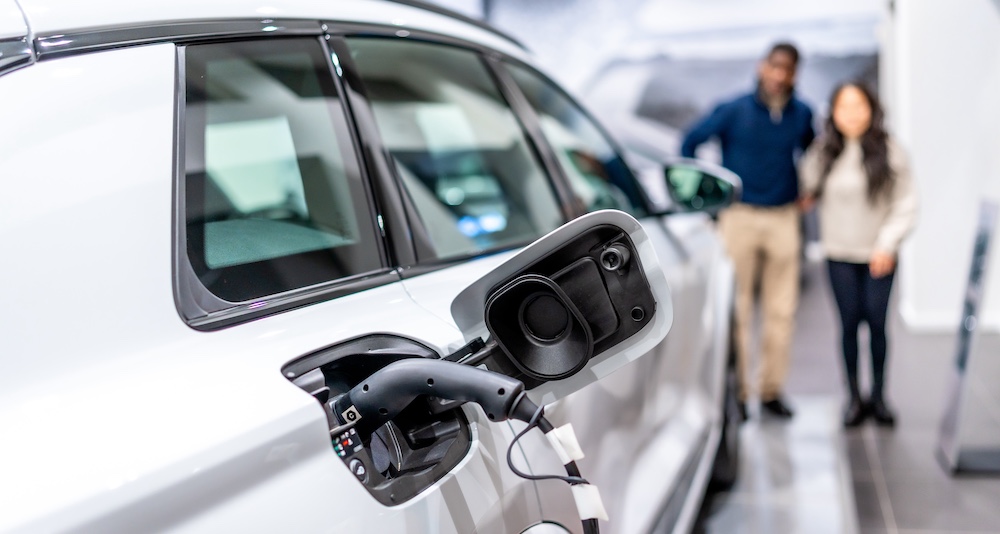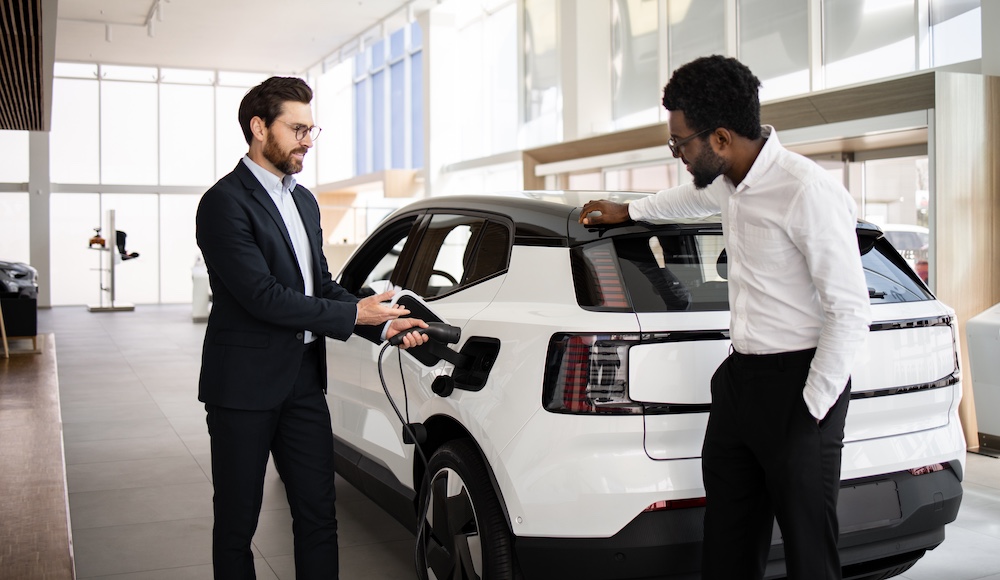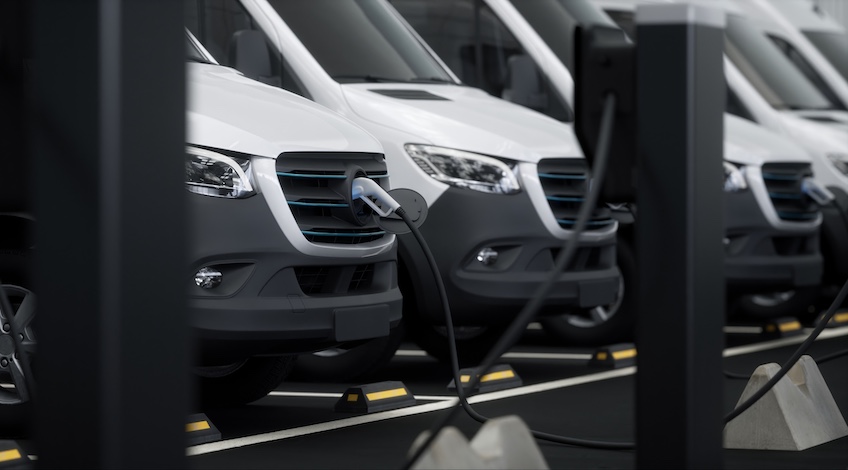Helping drivers adopt: A guide to boosting UK EV sales
UK EV sales are growing steadily, but dealers face challenges in converting consumer interest into sales. To increase adoption, retailers need stronger marketing, better sales training, and consumer education that addresses common adoption barriers like charging, cost, and technology confidence.
UK EV sales are rising – but not fast enough. Despite more models on the market, generous manufacturer incentives, and clear government targets, many manufacturers are still falling behind Zero Emission Vehicle (ZEV) mandate targets which stipulate the percentage of zero-emission car and van sales per year.
There is a gap between dealer readiness and consumer interest that is now one of the key barriers to wider EV adoption. Buyers are curious, but education and lack of experience keep them cautious, while sales teams are balancing internal combustion familiarity with the need to adapt.
This guide explores how UK dealers can refine their EV retail strategies, improve consumer education, and capture new market opportunities. Drawing on Cox Automotive’s 2026 UK EV adoption and perceptions report and market data, we’ll look at what’s driving – and holding back – the UK’s electric vehicle transition.
The state of UK EV sales today
The UK’s electric vehicle market continues to grow, with EV selling data showing more than 349,000 new battery electric vehicles (BEVs) registered in 2025 at the time of writing, representing a 22.1% market share, yet the rate of growth remains behind ZEV mandate targets.
The underlying story is more nuanced. Retail demand remains mixed, with fleet and business channels leading adoption, buoyed by benefit-in-kind tax incentives and corporate sustainability targets.
At the same time, the used EV sector is emerging as the most dynamic part of the market. Volatile residual values continue to make wholesale buyers cautious, with many waiting for the market to stabilise before committing to stocking more electric vehicles.
From a regulatory perspective, the ZEV mandate is reshaping OEM and dealer priorities. With 28% of new car sales required to be zero emission in 2025 – and targets rising annually – retailers must now align their stock mix and marketing strategies accordingly.
EV consumer perceptions are also shifting, with one in two (49%) UK drivers haven driven and electric vehicle. Younger buyers continue to dominate new EV uptake, while older consumers remain more hesitant due to battery range, cost misconceptions and public charging concerns.
Overall, UK EV adoption remains on an upward path – but success now depends as much on consumer confidence and retail readiness as on model availability.
EV consumer perceptions: What’s blocking adoption?
Our data reveals that many buyers still misunderstand the realities of EV ownership.
When asked about their biggest concerns, respondents cited:
- Battery range (60%)
- Battery lifespan (45%)
- Purchase price (40%)
- Maintenance costs (34%)
- Public charging availability (32%)
- Home charging access (28%)
While these fears are real, many are misplaced or overstated. Charging networks have expanded dramatically in the past two years, and average battery range now comfortably exceeds daily driving needs. Battery warranties and lower running costs further reduce lifetime expenses.
The takeaway for dealers is clear: education is key. Retailers who proactively address consumer misconceptions about charging infrastructure, battery longevity, and cost of ownership can move prospects from curiosity to commitment.
For instance, reframing “range anxiety” as “range awareness” – and showing how most drivers travel under 30 miles per day – helps make EV ownership feel practical, not risky.
Building an effective EV marketing strategy
Strong marketing remains the most powerful lever for changing consumer behaviour. In an evolving market where interest doesn’t always translate into purchase intent, targeted campaigns can be a powerful tool.
An effective EV marketing strategy should focus on three key pillars:
- Transparency – Simplify pricing, highlight running cost savings, and be upfront about available incentives. Clarity builds confidence.
- Localisation – Tailor messaging to local markets. Charging access and energy costs can vary across the UK; your content should reflect real-life experience for the buyer.
- Education-based storytelling – Replace hard selling with helpful guidance. Use simple, visual comparisons to show total cost of ownership benefits and created content that shows how easy charging can be.
While one in three (36%) drivers are already sold on electric vehicle, many are nervous about the disruption if may cause to their everyday transport habits. The most successful EV marketing strategies are those that show how easy running an electric vehicle can be, whilst highlighting the many benefits in a way that’s relevant and easy to understand.
The role of EV retail strategy and training
Sales teams are the bridge between the consumer and a purchase decision. Yet many feel under-equipped to answer detailed questions about charging, battery care, and energy use.
An effective EV retail strategy starts with training. Dealerships should ensure that every salesperson can confidently explain:
- How home and public charging work, including speed and cost differences.
- The fundamentals of battery life, warranty coverage, and maintenance.
- Real-world performance, including range, efficiency, and seasonal variation.
Practical experience matters too. Hands-on EV test drives are proven to build confidence and help staff build authentic enthusiasm that customers can feel.
By aligning EV sales training, digital retail tools, and in-dealership experiences, retailers can make electric mobility both aspirational and attainable.
Enhancing the customer journey: Experiences that break down EV adoption barriers
For many drivers, the move to electric will require a small lifestyle change. Dealers who recognise this can design experiences that de-risk and demystify the transition.
Three proven EV marketing approaches stand out:
- Extended test drives – Allow customers to live with an EV for a few days, experiencing the ease of home and public charging, as well as real-world range.
- Ownership simulations – Interactive tools help buyers visualise cost savings, charging patterns, and carbon reductions.
- Trusted education – Research shows that the majority of drivers (51%) would trust EV information from a non-dealer online resource
What’s next for UK EV sales: Turning challenges into opportunity
Despite market headwinds, the long-term trajectory remains positive. Analysts expect EVs to account for a growing share of total UK registrations by 2030, driven by regulation, consumer familiarity, and falling battery costs.
Whilst the market is still evolving, today’s challenges will become opportunities for retailers:
- Used EV demand – Choice and affordability will improve as more models enter the secondary market. Battery technology will become more proven, building confidence in the used market.
- Charging expansion – Public and workplace charging networks are scaling rapidly, easing access concerns.
- Price parity – As production costs fall, new EVs are edging closer to – and in some cases bettering – their petrol and diesel equivalents.
Cox Automotive continues to monitor used EV market trends and residual values to support dealers through the electric transition.
Conclusion: EV sales need educational retail strategies
The next phase of UK EV sales growth depends on the industry’s ability to convince drivers to make the switch. Dealers who communicate the benefits effectively, invest in sales training, and align marketing with consumer needs will lead the market in 2026 and beyond.
Growing EV adoption isn’t just about hitting targets, it’s about delivering trust, education, and great experiences for drivers.
For more insights, explore our EV Hub and stay connected to the latest Cox Automotive data and reports about the future of electric mobility.
UK EV sales and adoption (FAQs)
What are the main barriers to EV adoption in the UK?
The biggest obstacles remain cost perceptions, charging availability, and consumer knowledge. Education and experience can directly improve confidence and increase UK EV sales.
How can car dealers increase UK EV sales in 2026?
Dealers can boost adoption by combining educations and marketing with EV training and hands-on experiences.
What role does EV marketing strategy play in selling electric cars?
Marketing builds trust. It helps move buyers from consideration to conversion by addressing concerns, simplifying messaging, and showcasing real-world value.
Are used EVs helping to grow overall EV sales in the UK?
Yes. Used EV market trends show the landscape i expanding rapidly due to early adopters trading up. Lower prices and improved infrastructure are making EVs accessible to more buyers.
How can OEMs and dealer groups support EV adoption long-term?
Collaboration is vital. Shared data, consistent messaging, and dealer training programmes ensure customers get clear, accurate information at every touchpoint.







